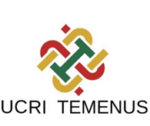A bold vision for a climate-neutral and competitive Europe
Context
This report reflects statements and questions made during the latest Climate and Energy Summit hosted by Friends of Europe, which brought together over 200 participants in-person and a few hundred online, from Brussels and all over Europe.This year’s event asked how decarbonisation can remain a cornerstone of European growth and not be a casualty of rising geopolitical tensions or of competing policy priorities.
Energy is central to the EU’s green industrial agenda, but vulnerabilities remain. US tariffs, along with Europe’s reliance on China for its critical raw materials, the impact of the Russian invasion of Ukraine on global energy markets, as well as recent energy outages in Spain and Portugal, expose structural weaknesses.
The summit explored how Europe can turn its green agenda into a powerful engine for investment, prosperity and shared decarbonisation pathways.
Speakers and participants considered questions including:
- What are the challenges and opportunities in the sectors showing green growth potential?
- How should regulatory efficiency be addressed in relation to evolving policy challenges?
- How can the EU support increased electricity integration between member states?
- Considering the existential nature of the challenges facing the EU, how can citizens be taken on board to maintain trust in the European project and climate neutrality goals?
- How can the EU support coordinated planning and investments in grid infrastructure?
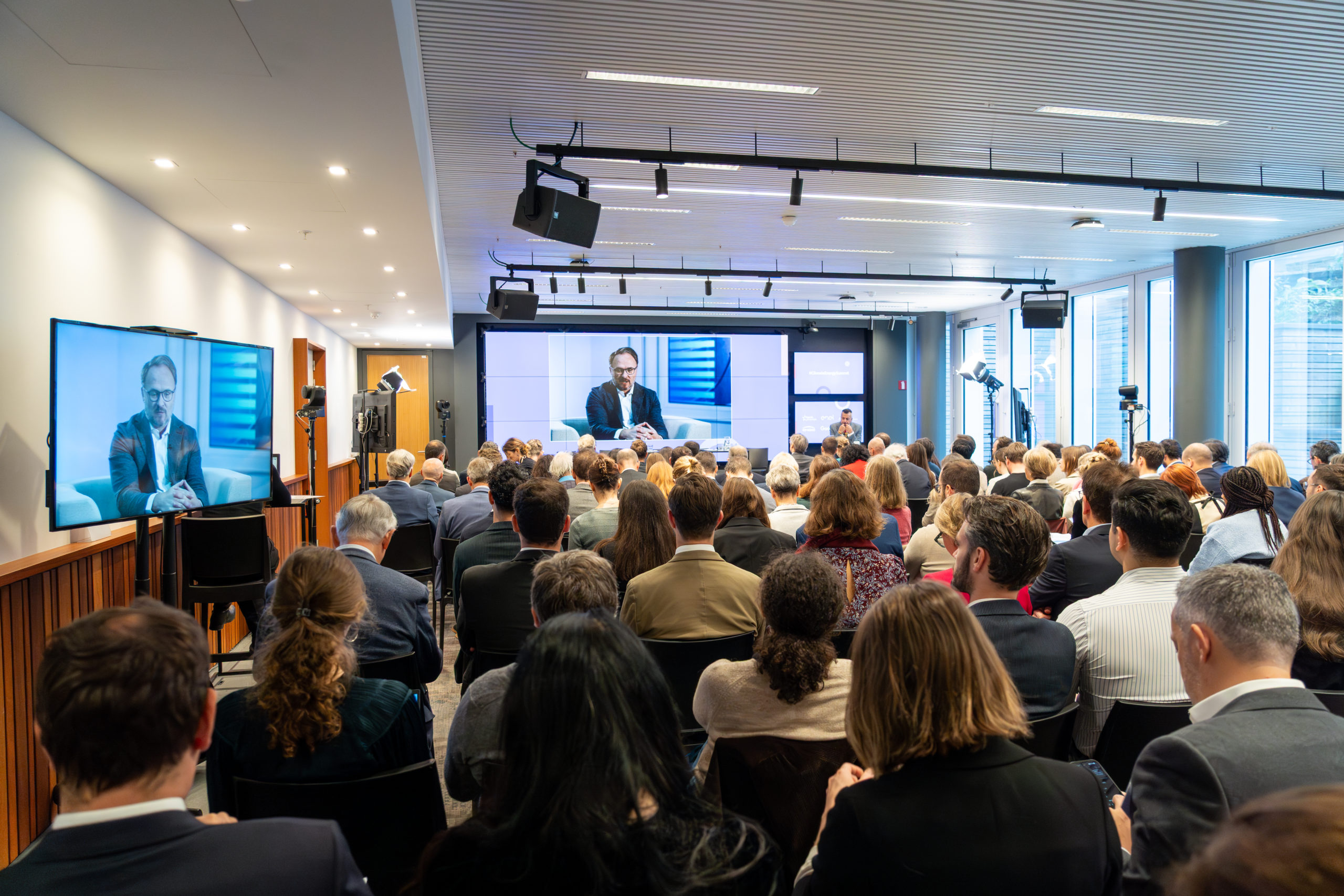
Ideas to take forward:
- Streamline permitting and regulatory frameworks: Europe must speed up approval processes and simplify regulations to unlock investments in renewables, grids, and new technologies.
- Strengthen European industrial competitiveness and technology sovereignty:Europe should decide which clean technologies to prioritise and ensure more of them are manufactured locally.
- Upgrade, integrate, and strengthen the security and resilience of Europe’s grids: Europe must modernize and interconnect its electricity grids, while at the same time strengthen its resilience against outages, cyber risks, and other vulnerabilities.
- Focus on data centres’ energy efficiency and grid integration: Data centres need to be more energy efficient and align their deployment with European electricity infrastructure to maintain the same speed. The “grid problem” calls for coordination between the AI-related companies and energy operators.
- Balance speed with environmental and social safeguards: A long-term and independent thinking approach is needed to ensure that the drive for fast progress on critical raw materials never overshadows the importance of rigorous environmental and social safeguards, so that Europe’s entire clean technology supply chain can be both sustainable and prepared to future innovation.
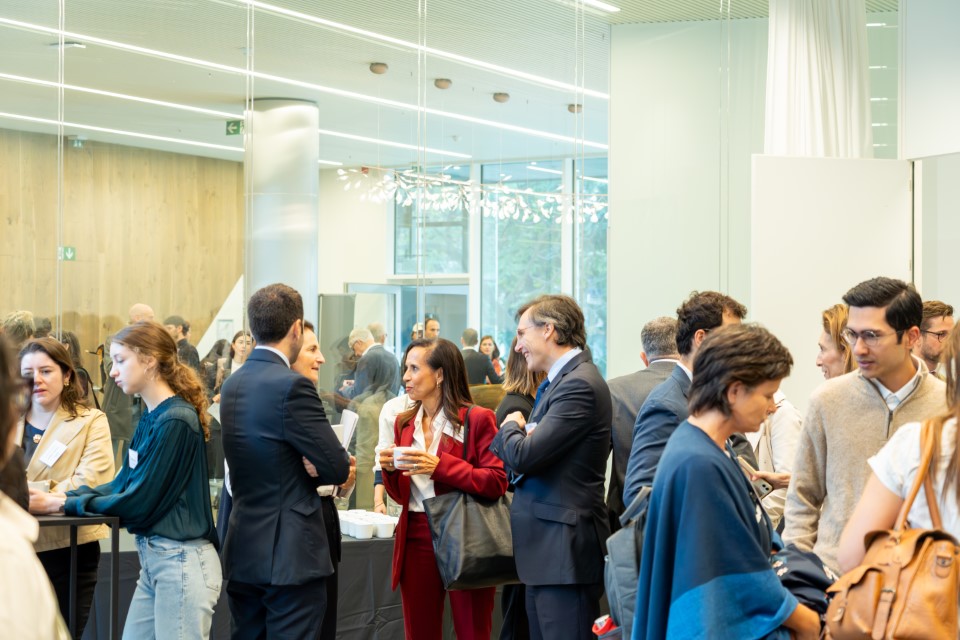
Event Summary
Connection between European “friends”
Maintaining EU leadership in a low-carbon society while developing a competitive economy means both building on past successes and embracing new opportunities.
Economic and energy security in Europe heavily depend on our capacity to tackle the climate crisis. The solutions to many of the challenges Europe is facing show great synergy; indeed, participants stressed that the number one priority today, across all political topics, is to defeat Russia and end the invasion of Ukraine. This means that investing in renewables and ensure the phaseout from Russian fossil fuels is not only good for climate, but it is also important to ensure a long-lasting peace by depriving Russia of its oil and gas revenues. At the same time, it also represents the best opportunity for Europe to lead on clean technologies and compete thanks to the price of renewable energy.
Participants agreed that accelerating efforts to further develop existing energy interconnections across national borders must be a priority.
“It is a bit of a paradox that the beautiful European Union we have, it started as a coal and steel union: basically, an Energy Union,” said Dan Jørgensen, European Commissioner for Energy and Housing at the 2025 climate and energy summit. “However, we’ve not managed to develop this Union and make it as functioning as we have on so many other issues.”
We are relying on the banks to provide the backbone financing for our economy. […] At some point, with the accelerating investment pace, we are going to run out of fuel – Jean-Christophe Laloux
The value of pan-European grid connections can already be seen, with estimates that the bloc saves up to 34 billion euros per year in energy bills because of cross-border grids and pipelines. It is also extremely important in these turbulent times to remember that many of the solutions Europe urgently needs overlap with each other. Security of energy supply fosters citizen security in times of conflict, while competitiveness is boosted by lower energy bills.
There is, however, a need not only to double the existing grid capacity but also to use what we have more effectively, for instance through digitalisation and expanding energy storage.
“The market is still way too fragmented,” said Jean-Christophe Laloux, Director General, Head of EU Lending and Advisory Operations at the European Investment Bank (EIB). Especially when it comes to financing, he stressed the importance of focusing on initiatives like the Savings and Investment Union. “We are relying on the banks to provide the backbone financing for our economy. […] At some point, with the accelerating investment pace, we are going to run out of fuel.”
“We need to be interconnected. We are a continent,” agreed Beatriz Corredor Sierra, Chairwoman of Redeia, the Spanish national transmission system operator. “We need connections with the continent or competitiveness is not possible.”
A ten-hour Spanish power outage in April this year left people unable to pay for food or to access emergency services. The blackout and other recent sabotage activities exposed Europe’s vulnerability to grid malfunctions and to deliberate attacks, but early claims that renewables were to blame for a sudden surge in power that took out the grid seem to be inaccurate. The vulnerabilities that led to the blackout show the necessity to build a system that balances technical security with costs and long-term system planning, crowd both additional public and private investments, and reform the legislative environment to obtain even more integration.
“Renewables are not dangerous for Europe. We have safely operated a system running on 80% renewable electricity,” Beatriz Corredor Sierra said.
There is a need for an expanded and updated grid to better accommodate renewables across borders, delivering them where and when they are needed. Reports say 7.2 billion euros worth of renewable energy was wasted across just seven countries in 2024, simply because it could not be accommodated by existing grid infrastructure.
Faster digitalisation of the permitting process can really help streamline the process of building a grid – Maud Texier
The European Commission is set to propose an EU Grids Package before the end of this year to address many of these challenges and ensure grids are adapted to future needs. The four priorities of the proposal, explained Mechthild Wörsdörfer, European Commission Deputy Director-General for Energy (DG ENER), will be to:
- use existing grids more efficiently,
- incentivising distribution networks to programme and plan a European approach, in place of “bottom-up” national policies, while identifying bottlenecks in regional planning,
- to speed up permitting processes, particularly for renewable energy infrastructure,
- to promote “cost-sharing”. For instance, the cost of a North Sea based project could be shared with landlocked countries benefitting from the power generated.
The points on increasing grid efficiency and ensuring better planning were echoed by Maud Texier, Director for Energy EMEA at Google. “Faster digitalisation of the permitting process can really help streamline the process of building a grid. My second point is around more proactive future-proof planning and investments.”
In addition, Nicolas Lefevre-Marton, Chief Group Strategy Officer at ENGIE, stressed that “not only planning must be done faster, but it must be done across energy vectors”. Using the different levers in the energy system, Europe could unlock greater efficiency and cost reductions.
As well as welcoming this high-level approach to developing a clean, interoperable grid, participants called for greater standardisation of the “nuts and bolts” of grid infrastructure: the technologies and equipment used by transmission System operators.
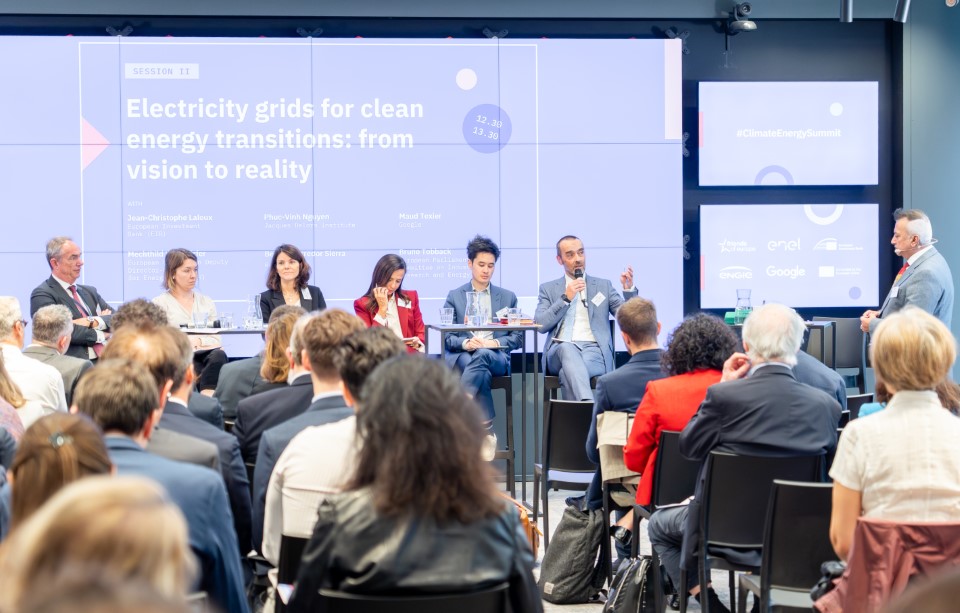
Connecting Europeans
“It feels like we’re at a crossroad and most signals are red,” as Friends of Europe Chief Operating Officer Dharmendra Kanani said. Public-private partnerships with civil society involvement are needed to build a better, more rounded energy policy.
As Krzysztof Bolesta, Polish State Secretary for Climate and Environment, put it: we all need to be “friends of Europe”, and he joked “we are like the elves in Tolkien’s Lord of the Rings: a shrinking bunch that should cooperate better.”
The summit made clear that cooperation cannot be driven only by the European capitals. Citizen perspectives must be included at all levels of decision-making, especially as measures aligned with climate-neutrality will increasingly affect their daily lives. Effective communication and constructive narratives are necessary to make sure that citizens don’t perceive the challenge of decarbonising the economy falling exclusively on them, rather than being shared with the industry.
Europe is at a critical juncture where choices made by regulators can help to maintain or win back citizen support. This is particularly clear in decisions seen to affect consumer energy bills. A shift from huge volumes of cheap Russian gas to clean renewables and power grid expansion will not be welcomed if household bills are not affordable.
“Issues of affordability and energy security are priorities we have to face.” said Andrea Wechsler, Member of the European Parliament Committee on Industry, Research and Energy, “People need to feel we are […] improving their lives”.
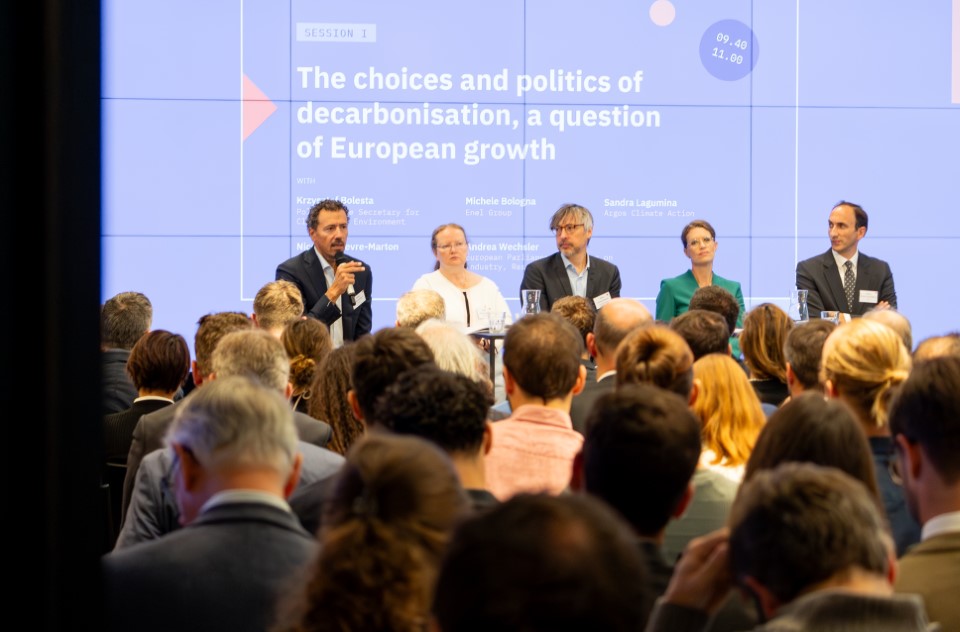
Citizen perspectives are also essential when going back to the topic of interconnections and a real energy union to ensure everyone benefits from the energy transition. The topic was explored by Bruno Tobback, Member of the European Parliament Committee on Industry, Research and Energy: “The people paying the electricity bills are also paying for the grids. We need to solve that,” he said, questioning how we can get the cost of interconnections “out of the bills of consumers”.
“We did it for highways,” Tobback added. Rather than charging individuals to build motorways and road connections, this was treated as “public infrastructure for the benefit of all.”
“It feels like we’re at a crossroad and most signals are red,” as Friends of Europe Chief Operating Officer Dharmendra Kanani said. Public-private partnerships with civil society involvement are needed to build a better, more rounded energy policy.
As Krzysztof Bolesta, Polish State Secretary for Climate and Environment, put it: we all need to be “friends of Europe”, and he joked “we are like the elves in Tolkien’s Lord of the Rings: a shrinking bunch that should cooperate better.”
The summit made clear that cooperation cannot be driven only by the European capitals. Citizen perspectives must be included at all levels of decision-making, especially as measures aligned with climate-neutrality will increasingly affect their daily lives. Effective communication and constructive narratives are necessary to make sure that citizens don’t perceive the challenge of decarbonising the economy falling exclusively on them, rather than being shared with the industry.
We need predictable, long-term investment frameworks for the energy transition – Nicolas Lefevre-Marton
Europe is at a critical juncture where choices made by regulators can help to maintain or win back citizen support. This is particularly clear in decisions seen to affect consumer energy bills. A shift from huge volumes of cheap Russian gas to clean renewables and power grid expansion will not be welcomed if household bills are not affordable.
“Issues of affordability and energy security are priorities we have to face.” said Andrea Wechsler, Member of the European Parliament Committee on Industry, Research and Energy, “People need to feel we are […] improving their lives”.
Citizen perspectives are also essential when going back to the topic of interconnections and a real energy union to ensure everyone benefits from the energy transition. The topic was explored by Bruno Tobback, Member of the European Parliament Committee on Industry, Research and Energy: “The people paying the electricity bills are also paying for the grids. We need to solve that,” he said, questioning how we can get the cost of interconnections “out of the bills of consumers”.
Sustainability is competitiveness
Europe must also take care that choices made today do not replace dependency on gas from Russia with dependency on technologies and critical raw materials from another country. Last year, 95% of the solar panels installed in Europe came from China.
The EU should, instead, take stock of what technologies it wants to prioritise, and focus on bringing their production to European soil. The Net Zero Industry Act is a welcome development for a climate-neutral, competitive Europe, but the need for more pragmatism was nevertheless highlighted by Krzysztof Bolesta, Polish State Secretary for Climate and Environment. “We start from five and we end up with 127 priorities. Is this workable?”. The importance of setting the priorities is also connected to the source of funding, as Krzysztof Bolesta went on to explain. “Relaxing state aid rules is creating another field where we fight within the European family, because some countries have a limited fiscal space. So, for me, more European money and a list of five key technologies.”
Michele Bologna, Head of European Affairs at Enel Group, also touched upon the point of prioritising strategic technologies, “Prototypes can be developed in Europe, even when there is no scale to compete. Initiatives can be incubated through research programmes such as Horizon Europe. Some manufacturing capacity for parts of batteries and photovoltaics can be reshored. These are not lost battles”.
“Decarbonisation is business,” said Sandra Lagumina, Senior Partner of the Argos Climate Action fund dedicated to the decarbonisation of SMEs. A three-year study heard 84% of European SME respondents say decarbonisation is both positive and an opportunity for them.
“We need a stable and predictable environment for investments in renewables and in grids,” added Michele Bologna, who went on to stress that regulatory fragmentation across Member States is threatening the predictability of investments on renewables and that it is essential to stick to the various integration phases of the single market in the energy sector.
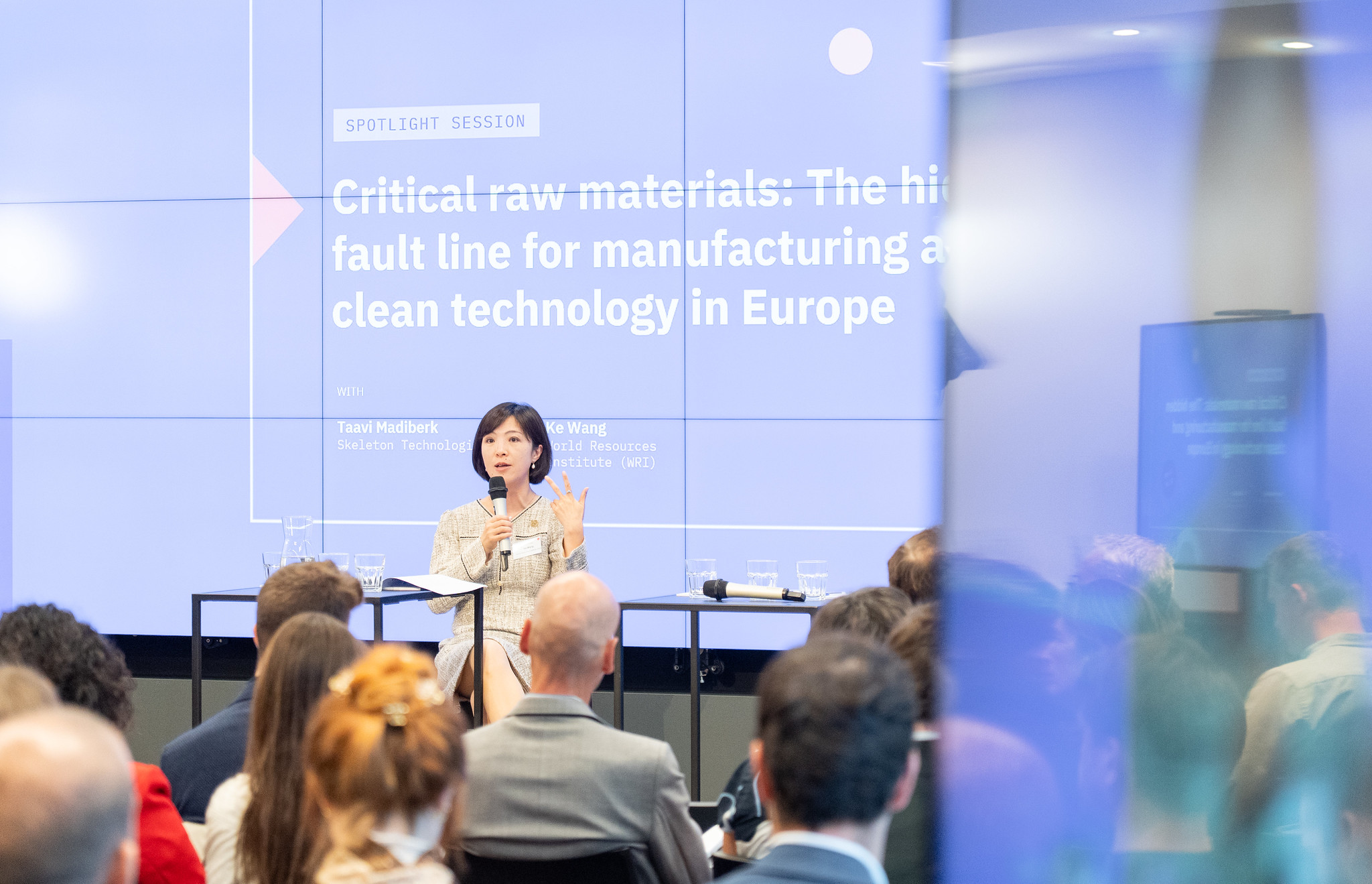
The same point was echoed by Nicolas Lefevre-Marton, Chief Group Strategy Officer at ENGIE, who agreed that “we need predictable, long-term investment frameworks for the energy transition”and mentioned the importance of ensuring that contracts for difference, power purchase agreements and flexibility mechanisms are truly long-term and become accessible to companies of various scale.
In addition, permitting processes must be made shorter in Europe. “I sometimes wish MEPs could spend a day in the life of energy developers,” he said, lamenting delays to permits for clean power infrastructure and suggesting 12 months should be the maximum time period.
Various panellists and participants throughout the summit mentioned the importance of simplifying legislative frameworks without leaning into deregulation. While it can be a difficult balancing process, there is scope in Europe to maintain resilience with a more effective and efficient framework.
The nuclear elephant
Whether or not to encourage nuclear in the EU energy mix was acknowledged as the elephant in the room. A “nuclear renaissance” is being witnessed in some parts of Europe and in the US, and participants suggested the EU should ensure there are no obstacles for governments who are going down that path.
At the same time, renewables are the most cost-effective solution for EU energy independence in the short-term. Along with the costs of construction and decommissioning nuclear power plants, Europe is faced with the challenge of a shortage of engineers with the skills needed in the nuclear sector.
Europe cannot afford to stay out of the AI race – Laura Cozzi
Whether Europe places increased focus on nuclear or not in coming decades, it is clear that the Union is not going to decarbonise with just one technology.
However, a key challenge is that “There are lots of silos in Europe,” as Andrea Wechsler, Member of the European Parliament Committee on Industry, Research and Energy said. Calling for more “cross-thinking” and interconnections, she warned that “we see a lot of anti-Europeans and not many friends of Europe.”
The European way in changing global realities
The state of global geopolitics, particularly since Russia’s invasion of Ukraine in 2022 and the re-election of Donald Trump, has produced a new way of doing politics, described by one summit attendee as “leaders making deals on golf courses.”
Moreover, participants were united in their dissatisfaction with an EU-US tariff deal that sees Europe buying large amounts of gas and oil from the US but recognised the reality of EU dependence on the United States for security.
Another new global challenge on the EU’s climate and energy agenda is the emergence of AI. Research from the International Energy Agency (IEA) warns that the energy consumption of (AI) data centres could double in the next five years.
However, “Europe cannot afford to stay out of the AI race,” said Laura Cozzi, Director for Sustainability, Technology and Outlooks at the International Energy Agency (IEA). Not just because of how prominent Artificial Intelligence is becoming in our daily lives, but also due to the fact that AI technologies are being integrated into much of the defence technology and for most of the optimisation of our industries and work processes.
Crucially, Europe has a grid problem and needs to work more closely with the grid sector to power AI and data centres as the digital and energy transitions accelerate. Industry will continue to demand more electricity than data centres over the next years, but energy will be a deciding factor in where data centres will actually be located.
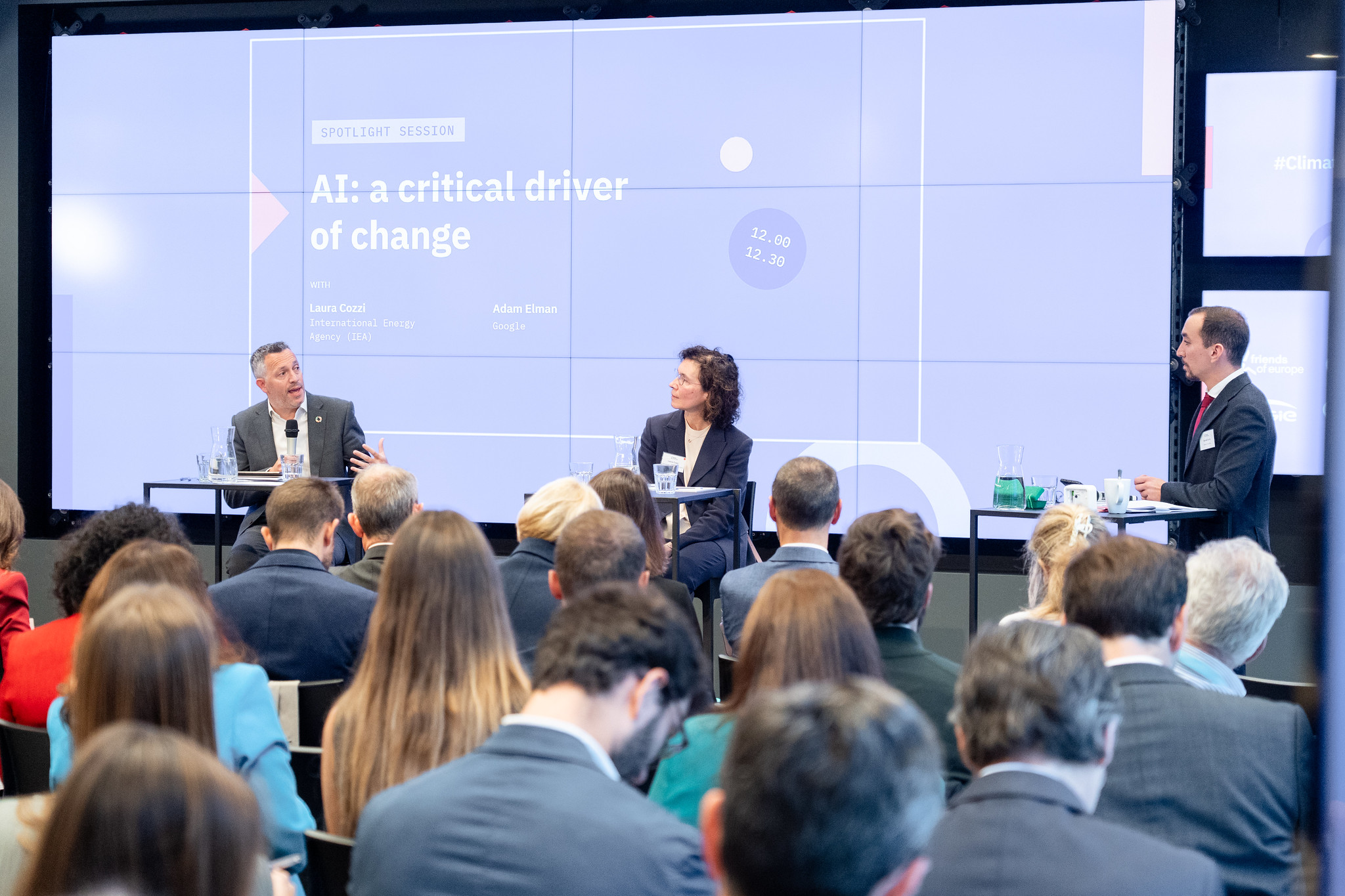
AI also brings great new opportunities in the fight against climate change. Adam Elman, Head of Sustainability for Google Europe, Middle East and Africa, pointed to the AI systems that can help save emissions. For instance, by helping drivers choose the most fuel-efficient route using Google Maps.
Other examples of ways in which AI can aid in climate action is, as Laura Cozzi, went on to explain, is by supporting the development of solar chemistry, where “just 0.1% of the potential opportunities have been explored”. Where humans take decades to explore other solutions in chemistry, AI can be used to crack very complex problems just as it has been done in natural sciences, where two Nobel Prizes have already been awarded to work related to AI. Moreover, in the global race for critical raw minerals, AI and machine learning can, for example, be used to identify locations where it is economically advantageous to extract specific materials.
However, while AI was championed as a great tool for speeding up mining for critical raw materials, the damaging sides of the industry did not go without mention. Ke Wang, Global Lead for Energy Minerals and Circularity at World Resources Institute, highlighted that while “everybody is raising to get minerals fast, we almost forget why we need these minerals to start with. If these are needed for the clean transition, this whole supply chain needs to be clean as well.”
A bold call for the future
Ten years ago, Europe used ‘the fruits of globalisation’ to make the clean energy transition more affordable. Now Europe is shaken by geopolitical earthquakes.
The Climate and Energy Summit 2025 heard that it is not too late to build a climate-neutral, competitive Europe but we must not wait for the next wake up call.
“Europe has already gone through so many shocks,” said Phuc-Vinh Nguyen, Head of the Jacques Delors Institute’s Energy Centre. “The debt crisis, the energy crisis, Covid…”
Each was in its way an existential crisis. So is climate change. There is no time to go back to business as usual.
SOURCE: Friends of Europe
